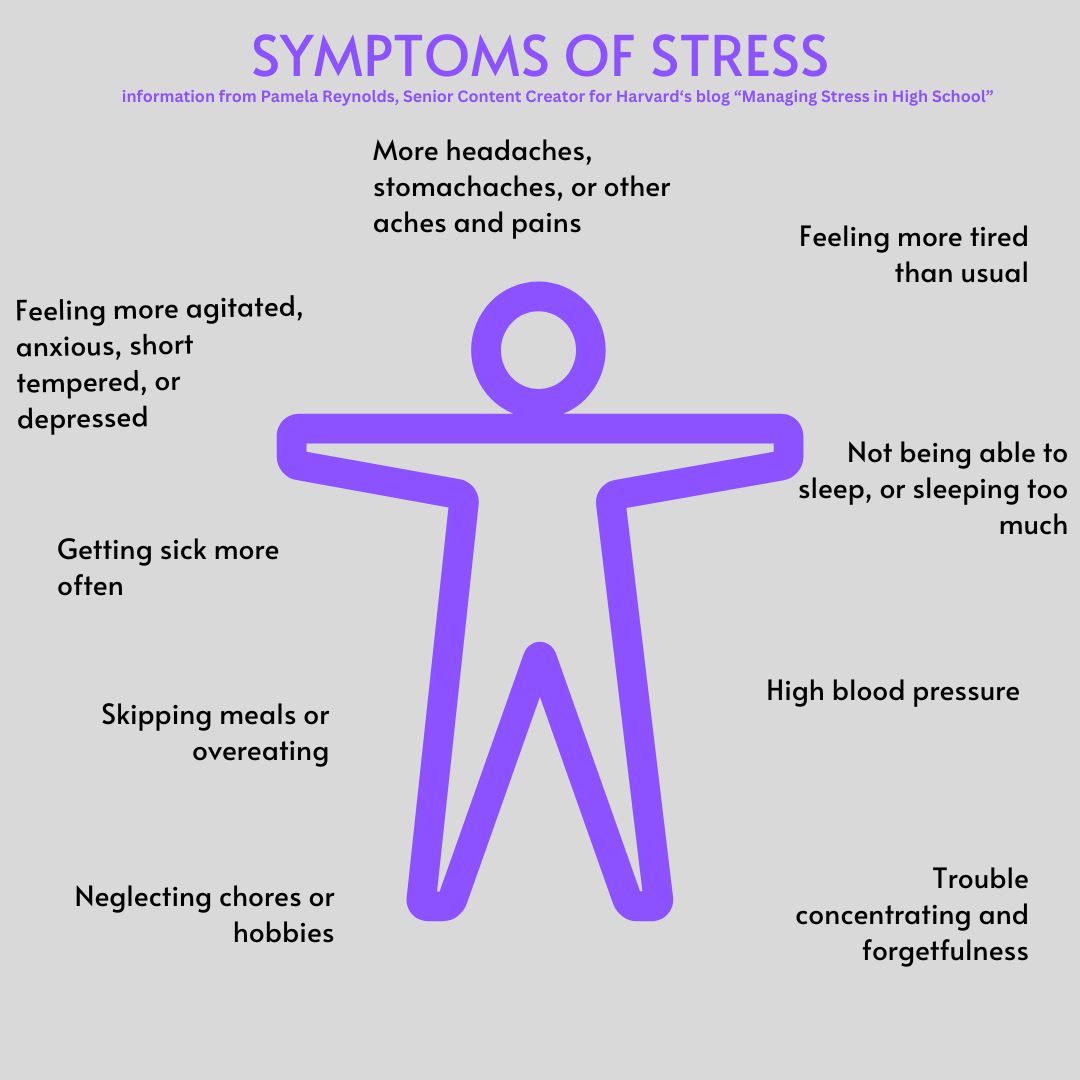Stress is defined in many ways. Pamela Reynolds, Senior Content Creator for Harvard defined stress to be our physical and mental responses to some external event.
“The top causes for stress can vary between academics, social stress, family issues, trauma, and big life changes,” the 2017 American Psychological Association Stress survey said.
Stress affects people in many ways and can stem from various sources such as academics, family, and social pressures. Among these, for high school students, school itself is one of the biggest causes of stress.
“Almost like every person I know, their stress comes from schoolwork,” Minds Matter President Trinity Duong said.
Deep breaths are the most known mechanism used to calm down someone’s heart rate when it’s overwhelmingly racing fast.
“A few techniques that might help teens manage stress are relaxation through deep breathing, meditation, or mindfulness, channeling energy into sports or creative pursuits such as music, art theater, and forming meaningful relationships or friendships,” Research Fellow at Harvard’s Weisz Lab for Youth Mental Health Sakshi Khurana said.
Longer lasting activities such as sports, friendships and relationships, or hobbies can help keep the brain occupied so it wouldn’t have time to be overwhelmed.
“When you remove any distractions, you’re able to just stick with your mind and kind of just sit there and give your brain a break,” Duong said.
Understanding how these topics contribute to the stress levels of a student is essential for finding effective ways to manage it. While various techniques can help manage stress, sleep stands out as a particularly crucial factor.
“Sleep 100%,” Zanne Webster said.
Andrew Bauld’s article “Managing High School Stress” encourages parents to start with the basics of helping their teenagers manage their stress, like encouraging healthy eating and adequate sleep.
“The problem isn’t with one specific class in most cases giving out too much homework, the problem is when you have seven courses all giving you one hour of homework a night, and it piles up,” Webster said.
Too much homework is one of many things that burn students out and leave them unable to find the energy to complete it or focus in classes.
“For the most part I was doing pretty okay my freshman year, but math just absolutely sucked, and what I did to manage my stress was I did all other advanced courses except math and I took a regular’s math class,” Webster said.
By pushing oneself academically is important, it’s crucial not to reach the point of exhaustion. Finding a balance is key in managing stress effectively.
“That actually decreased my stress a lot, and I think it was one of the best decisions I could’ve made at the time honestly for my mental health,” Webster said.
Managing stress effectively is crucial to maintaining both mental and physical health, as various strategies can help prevent it from becoming overwhelming.
“I kind of think of the past and kind of think of what I’ve been through, and I’m like ‘Yeah I’ve been through this before and I’ve gone through it and I’ve come so far.’ So seeing your growth, I think it gives you more motivation to stay strong,” Duong said.
Minds Matter is a much-recommended organization for people who suffer from the anxiety of stress.
“We’re a new club this year and we’re trying to promote and normalize mental health,” Trinity Duong said.
The club is always open to new members, even if it’s just to attend one meeting.
“It is going to get better, as much as you hear it and as annoying as it might sound, it is going to get better,” Duong said.
You’re never alone, stress is common, but there are ways to help manage it and people who can help you.








